Letizia Buzón after the earthquake in Turkey and Syria: "Now is when the tragedy of the survivors begins"
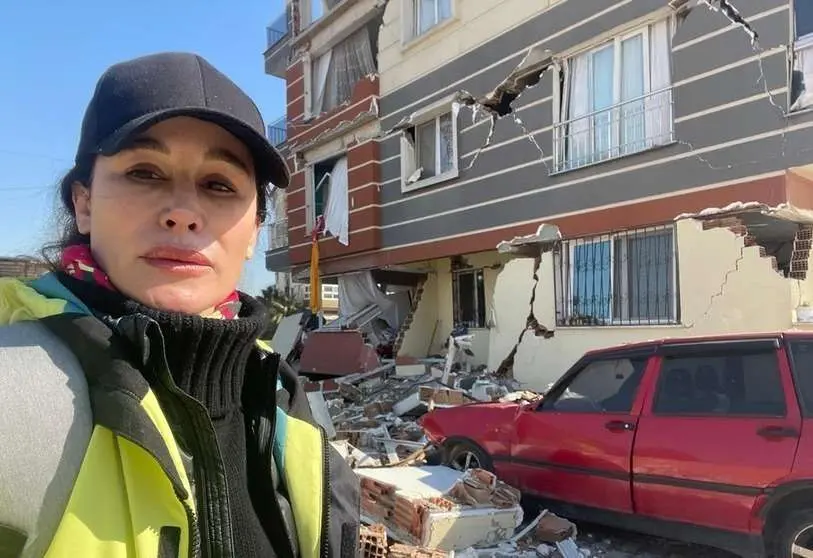
En la última edición de "De Cara al Mundo", en Onda Madrid, contamos con la participación de Letizia Buzón, abogada, doctora en Ciencias Políticas y Relaciones Internacionales y empresaria con intereses en Turquía y en el desarrollo económico en zonas de conflicto e inestabilidad política . Letizia Buzón colabora y apoya económicamente a varias ONG, especialmente desde 2014 Médicos del Mundo, en Turquía, porque lo considera un deber del sector privado.
Ha estado en la zona del terremoto de Turquía durante casi una semana. Llegaste el segundo día después del terremoto y ahora regresaste de allí, ¿qué es lo que más necesitan los damnificados ahora después del terremoto?
Right now the first thing that is needed is basic assistance to the survivors, both psychosocial and food. In the Antioch area, which is the epicentre and where I have been, a separate power line has been set up so that all the emergency teams and tents can at least have electricity, which is one of the gaps.
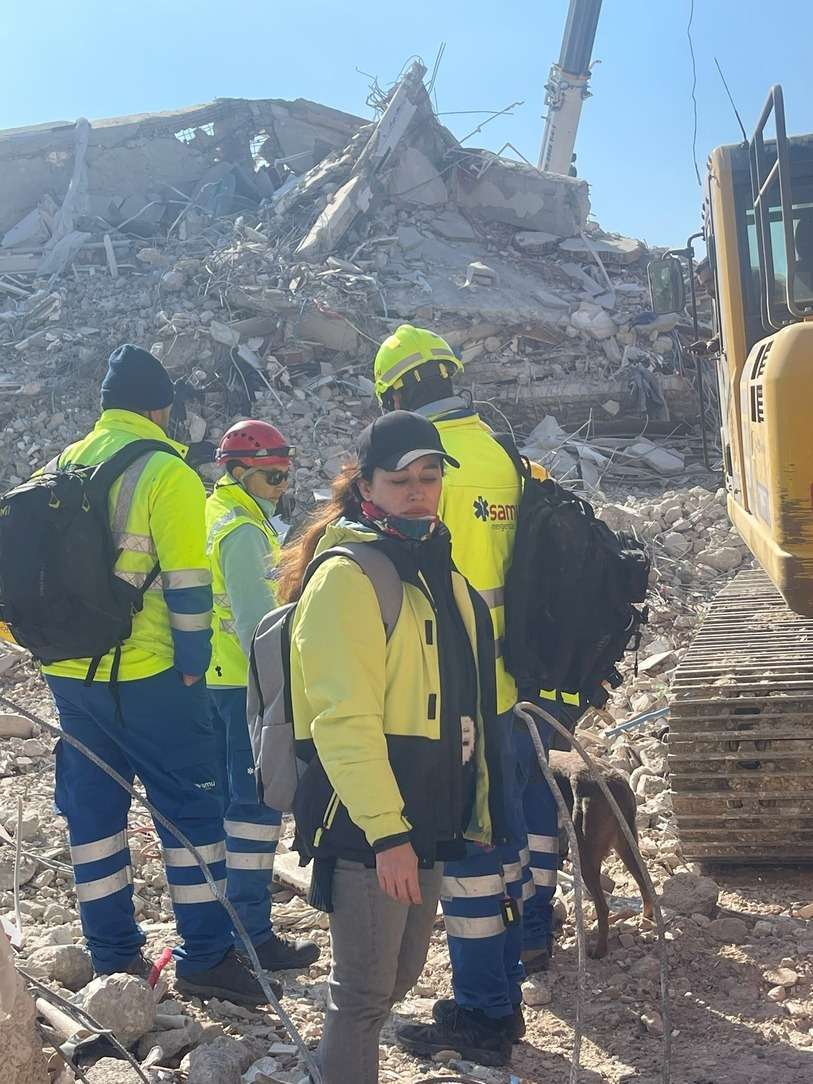
Your experience on the ground has been shocking because I heard you say that you have to be there to be aware of the true scale of the tragedy.
What we were saying with the rescue teams coming from Spain was that if you tell what you see, nobody really believes it. The feeling of extreme cold, the lack of electricity, the lack of running water, the lack of toilets, the putrid smell of dead bodies in the whole area, the sight, the dust... it's very shocking.
What makes you do this? To step on the ground when you wouldn't need to do this kind of work.
This is what the rescue teams were saying. Since we arrived, I was the only rescue and aid woman in the area. I am a businesswoman, I have, as you said, economic interests in Spain and Turkey and I have been living there for the last nine years. I am involved in private investment and the representation of certain brands, but I did set up a factory in 2017 to provide work for Syrian refugees because this area is where all the refugees were displaced. Since that year I have been exporting soap to Spain and helping these people to integrate. What brings me here is the fact that I am a human being. I have worked for many years with Doctors of the World in Turkey, who do an impressive job, they have their medical teams there, and I did not hesitate for a moment to go and help, especially for a team of doctors who do not speak the language to be able to rescue the people who were alive.
With your entrepreneurial initiative by opening the Aleppo Soap factory, you are helping people to recover their lives after the great tragedy that has lasted for more than ten years, the war.
Indeed. The great exodus was in 2014. I have a PhD in Political Science and I specialised in the integration of Syrian refugees in Turkey and how it would be understood from a legal point of view. The problem is that they are people who have come from the war and bear in mind that there are more or less six million refugees inside Turkey and almost all of them are concentrated in the area where the earthquake happened, which is the border extension. The idea is always that the NGOs, the UN and all the international aid is emergent and the first instance, but beyond that you need to integrate people in every sense and the way I understand it is in the private sector and creating jobs.
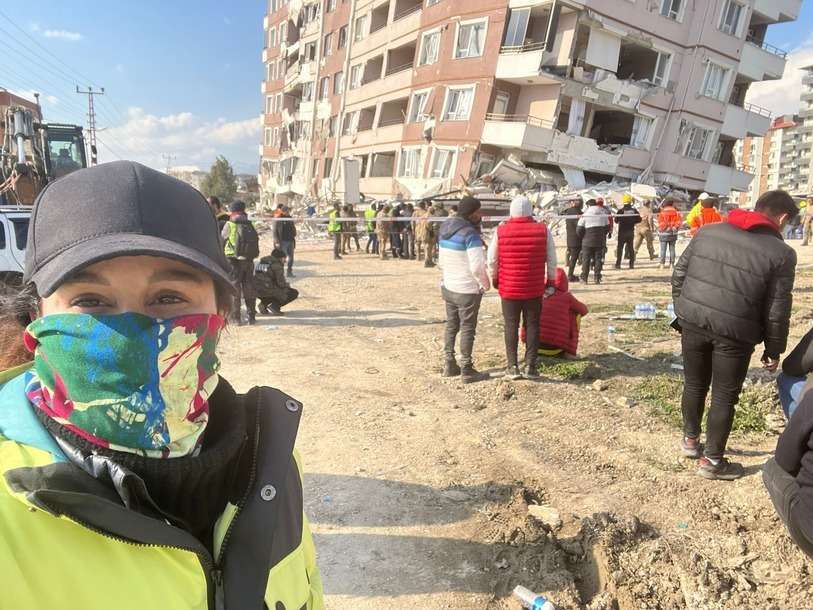
There were a lot of Syrian refugees in that region, so we can fear that the death toll is much higher than the 40,000 because the concentration of people in houses was much higher than people think.
I think the figure will be infinitely higher. What I don't know is whether the real figure will be given. Just to give you an example, there were buildings in Antioch with 15 or 20 floors that now you can only see one of them, and all that is underneath are the floors that have fallen down. If you do an easy calculation, you can understand how many people are under the rubble. I think the reality is going to be much more shocking than the news we are receiving.
With regard to the Syrian refugees, this is something that many people and many organisations have been denouncing for quite some time. Turkey took in, in a way that I personally think is noble and admirable, a number of refugees who were concentrated in cities that in many cases have tripled the population they had. As a result, these infrastructures have had to support all these people.
Now, what was being asked for was the issue of relocations, of sending these people back to rebuild their country, but the fact is that the infrastructures were totally under pressure and saturated.
So effectively this emergency of an earthquake, which is something natural, occurred in a very delicate context because they were areas totally saturated with people that few cities can support with the normal infrastructures they have. Bear in mind that Antioquia has grown from 100,000 to 500,000 inhabitants.
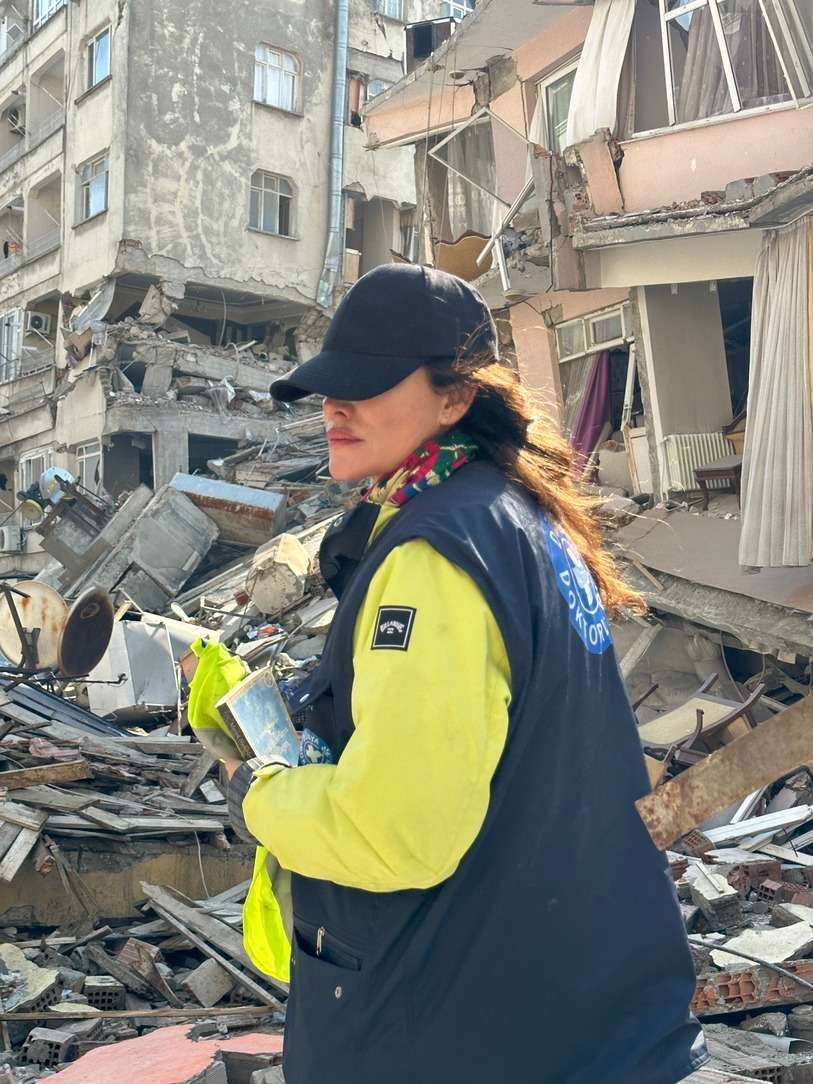
How are your workers and your factory? What news do you have?
The factory is in Gaziantep, 50 kilometres from Aleppo. The factory is not the one we are used to seeing because they are actually warehouses in which we put the machinery that the Syrians themselves brought from their country. The factory is totally destroyed, nothing can be done, but we will rebuild it. As for the workers, fortunately they are fine. Gaziantep is an affected area but not in its entirety like Antioch, which is the whole city.
The survivors now need a lot of attention, what should we do?
In my opinion, this is when the tragedy of the living begins. We are starting to deconstruct and we have to assist the people who are there, all the wounded, all the people who have amputations, we have to provide them with houses or containers so that they can sleep, have light and water. The whole area needs to be rebuilt.
The appeal I always make is that in the private sector we have a lot of work to do. The emergency will last for a long time. We have to try to prevent any epidemic or cholera from starting and that's why we are starting to clean up. The United Nations has to come in and UNICEF has to come in. We really have to deal with the emergency and from there we have to rebuild. The national or international machinery has to be activated so that this can go ahead because if not, it's going to be a problem for everyone. Maybe from the outside it looks like something far away but the impact is for everyone.
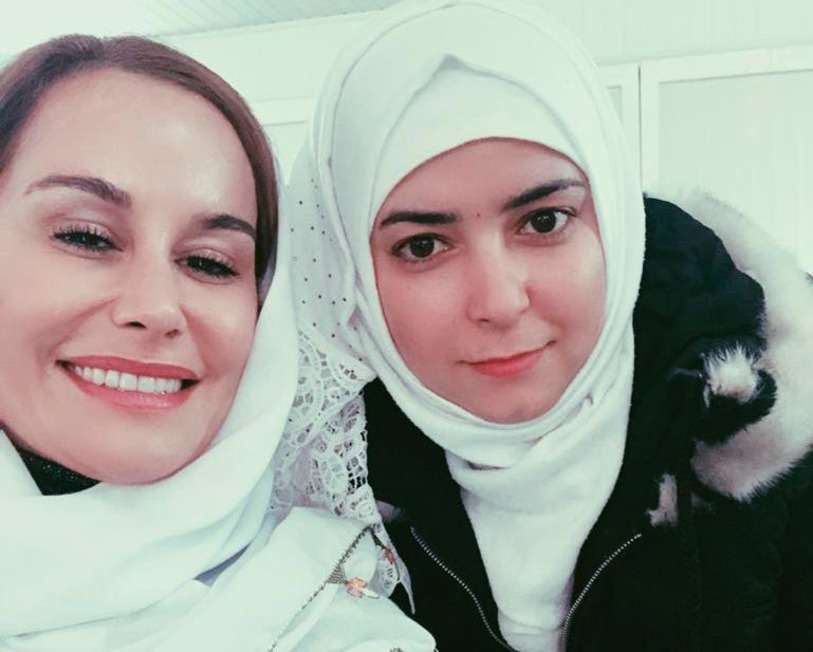
What can each of us do to help?
I think we can help the organisations that have been there for a long time, because they were already managing the emergencies. The one I work with, Doctors of the World in Turkey, are people who can be helped financially. In fact, the equipment of materials is relative because what a kilo of sugar costs here is 1€, but what it costs to send it costs 15€. So I think that economic aid is much more effective.
Let me give you my personal case. In order for me to be there, we need a structure outside, people to help us. You can imagine that I have no commercial interest in this part of the company, but I have donated in all the earthquake emergencies, and there have already been three, and you can do it through the website letiziabuzon.com. Right now, what is needed there are people, they are professionals in any field that they think can help.
Me dicen que comprando el jabón con sus características y su alta calidad también contribuimos porque estás donando dinero de la venta del jabón de Alepo.
Sí, efectivamente es un jabón artesanal. Cuando comencé el proyecto, los sirios dijeron que extrañaban el olor de su jabón y fue entonces cuando descubrí el jabón de Alepo. Está hecho a mano y tiene muy buenas propiedades. Hay una cosa que también me gustaría mencionar y es que cuando se empezó todo, también se hizo para que cuando regresen puedan continuar con esta tradición. Donamos 1€ por cada jabón a Médicos del Mundo y llevamos haciéndolo desde 2017.








